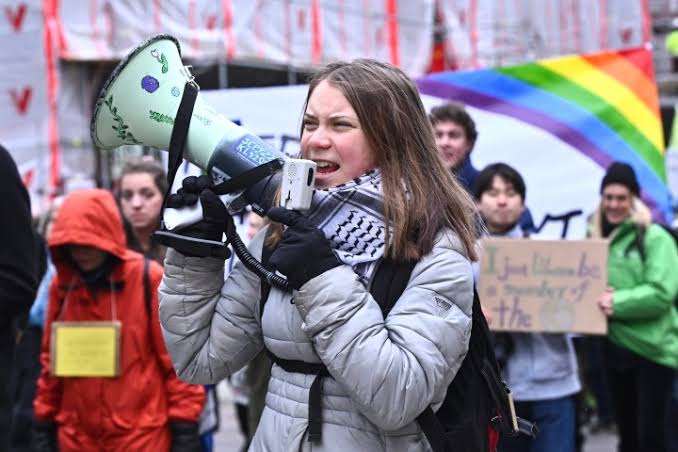
Sweden’s Supreme Court announced on Wednesday that Greta Thunberg, along with hundreds of other activists, will not be allowed to move forward with a class action lawsuit aimed at compelling the government to enhance its efforts against climate change.
The activists initiated the lawsuit in 2022, claiming that the government’s insufficient actions to combat climate change violate the European Convention on Human Rights. The case has been under review primarily for procedural reasons.
The group, known as the Aurora group, consisting of 300 plaintiffs, sought a judicial mandate for Sweden to take more decisive steps to limit global warming to 1.5 degrees Celsius (2.7 degrees Fahrenheit).
Supreme Court Justice Jonas Malmberg stated to Reuters, “A court cannot mandate that parliament or the government undertake specific actions without those democratic institutions making independent decisions on such matters.”
However, the court did not entirely dismiss the possibility of a differently structured climate lawsuit being considered in Sweden, noting that the European Court of Human Rights (ECHR) has indicated that certain groups may have the right to pursue legal action regarding climate change.
In its statement, the Supreme Court clarified that any future case would need to focus solely on whether individuals’ rights under the convention have been infringed, rather than dictating specific actions the state must take.
The Aurora group announced its intention to explore potential legal avenues.
Ida Edling, Aurora’s legal and scientific coordinator, stated to Reuters, “We will persist in our efforts to avert planetary collapses and urge Sweden to fulfill its legal obligations to uphold human rights and mitigate the worsening of the planetary crisis.”
In a ruling last year, the European Court of Human Rights determined that the Swiss government had infringed upon the rights of a senior women’s association by not taking sufficient action against climate change.
Read more: South Korea court finds former officials guilty of forcible return of N.Koreans
However, the court dismissed two additional cases, including one brought by six young Portuguese individuals against 32 European nations, in which the plaintiffs argued that these states were not doing enough to prevent catastrophic climate change.
The court clarified that these individuals must first seek a decision in Portugal.
(This story has been amended to correctly identify the European Court of Human Rights, rather than the European Court of Justice, in paragraph 5).



